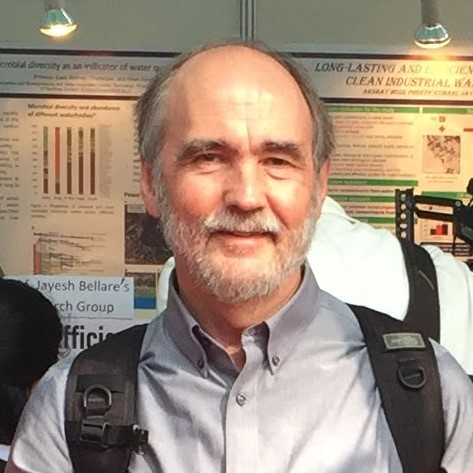Page 417 • (4,679 results in 0.021 seconds)
-

graduate programs at Pacific Lutheran University are designed to combine practice and theory to prepare students to take the next step in their careers. We understand the value of a grad school cohort, and for that reason, we offer the following programs in a cohort model. Master of Arts in Marriage and Family Therapy Master of Arts in Education Master of Science in Kinesiology Master of Science in Nursing Master of Science in Marketing Analytics Doctor of Nursing Practice Want to learn more about
-

associate professor of chemistry, intended the general education summer term course to appeal to students without a declared science major as a way to gain a lab experience and learn about her discipline through a fun, non-intimidating lens. “I was trying to think of how to do some sort of Gen-Ed course,” Munro said. “It was Thanksgiving, and I watched a lot of Great British Baking shows, and I was like, ‘Oh, we can do these as labs!’” But what’s the connection between food and chemistry, you might ask
-

some helpful information and recommendations as we all navigate the new FAFSA form and delays together.Why is the FAFSA so important?The FAFSA is the method the federal government uses to determine how much you and your family can afford to contribute to your education, and it’s how colleges (like PLU) determine what need-based scholarships and grants, as well as loans and work study, we can offer you. Completing the FAFSA is the best way colleges can build a comprehensive financial aid package for
-

Ann Auman Professor of Biology she/her/hers Phone: 253-535-8485 Email: aumanaj@plu.edu Office Location: Morken Center for Learning & Technology - 239 Office Hours: (On Campus) Mon - Fri: By Appointment Professional Biography News Additional Titles/Roles Dean of Natural Sciences Natural Sciences Undergraduate Research Program Director Responsible Administrator for the Tacoma/South Puget Sound MESA Program Pre-Health Sciences Advising Team Member STEMinist Student Club Faculty Advisor Education
Office HoursMon - Fri: -Area of Emphasis/Expertise -
hours) CHEM 115, 116 (8 semester hours) ENGR 131 (2 semester hours) DATA 133 or CSCI 144 (4 semester hours) Completion of the General Education Program element requirements as specified in the catalog, except that the following general requirements are waived for all dual-degree (3-2) students: Completion of a minimum of 128 semester hours on the PLU transcript; Completion of a minimum of 40 semester hours from courses numbered 300 and above; The requirement that at least 20 of the minimum 40
-

Craig Fryhle, Ph.D. Professor of Chemistry* Phone: 253-535-7530 Email: fryhlecb@plu.edu Status:Phased Retirement Website: http://www.chem.plu.edu/node/503 Professional Biography Personal Education Postdoctoral Research, Organic Chemistry, University of Washington, 1985-1986 Ph.D., Organic Chemistry, Brown University, 1985 B.A., Chemistry, Gettysburg College, 1979 Areas of Emphasis or Expertise Organic Chemistry Responsibilities Teaching Responsibilities: Organic Chemistry I and II lecture and
Area of Emphasis/Expertise -

together to explore the theme of Re-forming, as we celebrate the 500th Anniversary of the Reformation and honor the core tenets of Lutheran higher education – critical questioning, freedom for expression, foundation in the liberal arts, learning and research within community, intrinsic value of educating the whole person, discerning one’s vocation in the world, and service to the advancement of life, health, and wholeness. Read Previous PLU places in English and Spanish Worlds at Mark O. Hatfield
-
. – OTHER PERSONNEL Part V. – FACULTY ELECTIONS Part VI. – VOTING ELIGIBILITY Part VII. – FACULTY STANDING COMMITTEES Part VIII. – UNIVERSITY STANDING COMMITTEES Part IX. – FACULTY REPRESENTATIVES TO THE BOARD OF REGENTS Part X. – COUNCILS SECTION III: ACADEMIC POLICIES, PROCEDURES, AND SERVICES Part I. – ACADEMIC ADVISING Part II. – CONTINUING EDUCATION Part III. – ACADEMIC INTEGRITY Part IV. – PROVOST Part V. – COLLEGE, SCHOOL, DEPARTMENT, AND PROGRAM ADMINISTRATORS Part VI. – EDUCATIONAL POLICIES
-
Part VI. – VOTING ELIGIBILITY Part VII. – FACULTY STANDING COMMITTEES Part VIII. – UNIVERSITY STANDING COMMITTEES Part IX. – FACULTY REPRESENTATIVES TO THE BOARD OF REGENTS Part X. – COUNCILS SECTION III: ACADEMIC POLICIES, PROCEDURES, AND SERVICES Part I. – ACADEMIC ADVISING Part II. – CONTINUING EDUCATION Part III. – ACADEMIC INTEGRITY Part IV. – PROVOST Part V. – COLLEGE, SCHOOL, DEPARTMENT, AND PROGRAM ADMINISTRATORS Part VI. – EDUCATIONAL POLICIES COMMITTEE MANUAL Part VII. – OTHER POLICIES
-
PERSONNEL Part V. – FACULTY ELECTIONS Part VI. – VOTING ELIGIBILITY Part VII. – FACULTY STANDING COMMITTEES Part VIII. – UNIVERSITY STANDING COMMITTEES Part IX. – FACULTY REPRESENTATIVES TO THE BOARD OF REGENTS Part X. – COUNCILS SECTION III: ACADEMIC POLICIES, PROCEDURES, AND SERVICES Part I. – ACADEMIC ADVISING Part II. – CONTINUING EDUCATION Part III. – ACADEMIC INTEGRITY Part IV. – PROVOST Part V. – COLLEGE, SCHOOL, DEPARTMENT, AND PROGRAM ADMINISTRATORS Part VI. – EDUCATIONAL POLICIES COMMITTEE
Do you have any feedback for us? If so, feel free to use our Feedback Form.


